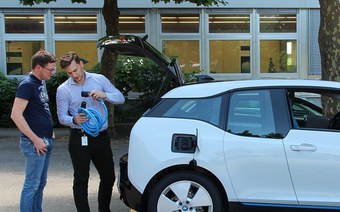
Center for Cleantech and Sustainable Energy Systems
We support companies and the public sector in the development of sustainable, circular products and services.
The Center for Cleantech and Sustainable Energy Systems offers many years of experience in the interdisciplinary implementation of projects in the industrial and service sectors. For our partners, we analyze potentials and develop technologies and business models to promote the circular economy along the entire value chain.
Areas of expertise
Cleantech and the circular economy
Sustainable economic growth requires new processes, products and services that increase performance and productivity while reducing emissions and conserving resources.
Digitalisation in cleantech
Digitalisation holds great potential in the cleantech sector for improving transparency, increasing energy and resource efficiency and reducing emissions from processes and products along the entire value chain. Digitalisation also harbours risks for society and the environment that need to be taken into account when using it, such as the protection of privacy and cyber security.
Sustainable energy production, management and utilisation
Alongside greater energy efficiency, renewable energy sources are the most important pillar of a sustainable energy policy and the energy transition.
Development of sustainable plastic materials, processes and applications
Optimised use of resources and more efficient products offer innovative solutions for current industrial challenges.
Electromobility
Electromobility is regarded as a central component of a sustainable and climate-friendly transport system.






